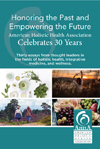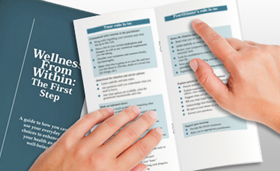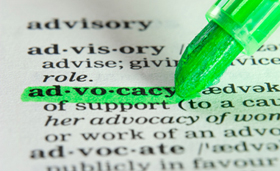American Holistic Health Association
The free, impartial wellness resource connecting you to the power of choice

Special Updates
Archives 2017
Special Updates Reports from the American Holistic Health Association with items of interest to those actively enhancing their health and well-being are periodically sent out to email addresses provided by the individual or organization. AHHA President, Suzan Walter, is the Editor. You can have these Special Updates sent to you personally by signing up online.
FEATURED ISSUE
Antibiotic resistance threat
Antibiotics are medicines used to prevent and treat bacterial infections. Yet bacteria can mutate and become resistant to antibiotics. The current expansion of antibiotic resistance is viewed as a global and urgent threat. Identified causes for this increasing rate of resistance are moving beyond just the overuse of antibiotics with humans and animals. The most recent studies point to agricultural chemicals and solvents, wetting agents, and surfactants used in commercial products. To address this serious threat personally, consider not using antibiotics for minor infections, consume only meat and poultry that has not been treated with antibiotics, and be aware of the chemicals in the products you use in your home and garden. If you must use an antibiotic for a major infection, consider being pretested to identify which antibiotic will work for your need and determine the optimal dosage level, and/or ask your health care provider about pairing synergetic antibiotics.
ISSUE: Awareness of causes of antibiotic resistance
AHHA strives to maintain a neutral position on issues and views knowledge as power. For those interested in learning more about this month’s issue, the following related articles were selected to serve as a foundation for researching this matter.
Antimicrobial resistance (9/19/17)
World Health Organization
National Action Plan Drives Progress in Fight Against Antibiotic-Resistant Bacteria (11/13/17)
by Christopher M. Jones, PharmD, MPH
U.S. Department of Health & Human Services
‘Antibiotic apocalypse’: doctors sound alarm over drug resistance (10/8/17)
The Guardian
Understanding and overcoming antibiotic resistance (8/23/17)
by Lauren A. Richardson
PLOS
Scientist challenges EPA over antibiotic resistance (11/21/17)
by David Williams
Newsroom
New Study Confirms Herbicides Induce Antibiotic Resistance in Common Pathogens (11/20/17)
by Erik Goldman
Holistic Primary Care News for Health & Healing
Roundup Creates Antibiotic Resistance (12/5/17)
by Dr. Mercola
Mercola
Bacteria can spread antibiotic resistance through soil (10/6/17)
by Tracey Peake
Phys.org
We encourage you to go to our blog at https://ahha.org/blog and post your comments. You are invited to share additional resources you have found relating to this issue.
FEATURED AHHA RESOURCE
Unique video blurbs
You are invited to view brief educational health-related video clips created by AHHA members in our Self-Help Videossection. These clips with health and wellness tips are offered to support your journey toward a higher level of wellness.
November 17, 2017
FEATURED ISSUE
Non-addictive pain control
Opioid addiction is now viewed as a national epidemic. Addressing this issue, Congress has passed the Comprehensive Addition and Recovery Act and the 21st Century Cures bill, which included $1 billion in state grants to fight opioid abuse. Many articles in the media have focused on what is being done wrong: the restricted access to less addictive painkillers, the prevalence of opioid prescriptions, and the required prior approval by the insurance industry for more expensive non-addictive medications. The reliance on insurers to make decisions about the type of medications available to patients means that some insurance policies deny payment for less addictive opioid and non-opioid painkillers. In some cases, patients are required to try the less-expensive drugs first. There is beginning to be an effort to encourage people with chronic pain to learn about non-drug treatments, such as physical therapy, acupuncture, chiropractic, and yoga.
ISSUE: What can be done to reduce pain without the use of addictive medications?
AHHA strives to maintain a neutral position on issues and views knowledge as power. For those interested in this month’s issue, the related articles were selected to serve as a foundation for researching this entire matter.
Amid Opioid Crisis, Insurers Restrict Pricey, Less Addictive Painkillers (9/17/17)
by Katie Thomas and Charles Ornstein
The New York Times
Many Insurance Plans Cover Opioid Painkillers But Restrict Access To Less-Addictive Drugs (9/18/17)
by Chris Morran
Consumerist
Senator Calls on Insurers to Improve Access to Non-Opioid Pain Treatments (9/26/17)
by Charles Ornstein
ProPublica
Fighting pain without drugs [link no longer available] (10/14/17)
by Elizabeth Bloomfield
Rutland Herald
Mississippi Attorney General joins nationwide effort to push opioid alternatives (9/20/17)
by Therese Apel
Clarion Ledger
Pressure on insurance companies to consider role in opioid crisis (10/22/17)
by Charles Ornstein
The Connecticut Mirror
States ask insurers to prioritize non-opioid pain treatment[link no longer available] (8/18/17)
by The Associated Press
Washington’s Top News
Pain Experts Push for Coverage of Alternative Therapies (10/24/17)
by Pauline Anderson
Healthglu
We encourage you to go to our blog at https://ahha.org/blog and post your comments. You are invited to share additional resources you have found relating to this issue.
FEATURED AHHA RESOURCE
Unique video blurbs
You are invited to view brief educational health-related video clips created by AHHA members in our Self-Help Videossection. These clips with health and wellness tips are offered to support your journey toward a higher level of wellness.
October 13, 2017
FEATURED ISSUE
Are flu shots safe?
It’s that time of year again when you will be urged to get your annual flu shot. Notice that the old controversies are showing up again, plus a number of new ones. Will you become well informed about the current pros and cons before you make your decision whether or not to get a flu shot this year? Some interesting new concerns may surprise you.
ISSUE: Flu shot safety documentation
AHHA strives to maintain a neutral position on issues. For those interested in this month’s issue, we have selected the following current online articles as a sampling of both pro and con perspectives to get you started on your research.
PRO
Frequently Asked Flu Questions 2017-2018 Influenza Season (9/14/17)
Centers for Disease Control and Prevention
Pregnant Women Should Still Get The Flu Vaccine, Doctors Advise (9/25/17)
by Rebecca Hersher
Health News from NPR
10 Things for Parents to Know About the 2017-2018 Flu Vaccine (9/15/17)
by Kathleen Berchelmann, MD, FAAP
Healthychildren.org
Study: High-dose flu vaccine may cut deaths in seniors (3/2/17)
by Stephanie Soucharay
Center for Infectious Disease Research and Policy
CON
Flu Vaccine and Miscarriage [link no longer available] (10/4/17)
Alliance for Natural Health USA
Why flu vaccines so often fail (9/20/17)
by Jon Cohen
Science Magazine
Vitamin D Is More Effective Than Flu Vaccine, Study Says (2/27/17)
Mercola
Is the Flu Shot Safe? (9/20/17)
by Katie Wells
Wellness Mama
We encourage you to go to our blog at https://ahha.org/blog and post your comments. You are invited to share additional resources you have found relating to this issue.
FEATURED AHHA RESOURCE
Change a life
AHHA offers a single sheet that introduces the powerful concept of the “holistic approach.” It’s available for free! Check out our Gift for a Better Life flyer. Who do you know who could benefit from receiving a copy of this sheet? Download it at https://ahha.org/flyer-menu-page/, print it out double-sided, share it with a friend, and empower that friend’s life. Notice that this flyer is available in both English and Spanish.
September 15, 2017
FEATURED ISSUE
Sperm counts declining. Why?
Research indicating a serious decline in male fertility made headlines in late July 2017. This matter was selected as this month’s Featured Issue because little has been published that explains the cause for this situation. Assuming that both total sperm counts and semen concentrations are at levels that will affect fertility and men’s health, why is there not an outcry demanding research that uncovers causes and solutions before this trend gets even worse?
The latest research report screened 7,518 published reports and comprehensively analyzed 185 studies done between 1973 and 2011. The conclusions reported a 50-60 percent decline in sperm counts among men from North America, Europe, Australia and New Zealand over that 38-year period. These findings are worrisome to many because men’s sperm counts are not only linked to their chances of conceiving a child, but also to a number of other poor health-related outcomes, including an increased risk of early death.
While articles in the media pointed out that this 2017 summary research report did not address the causes for the declining sperm counts, many articles did report some possible causes noted in the past. These primarily included environmental and lifestyle influences. Some specific causes mentioned were prenatal chemical exposure, adult pesticide exposure, smoking, stress, and obesity.
ISSUE: Should not knowing the causes for declining sperm counts be a wake-up call?
AHHA strives to maintain a neutral position on issues. For those interested in this month’s issue, the following articles have been selected to get you started on your research.
Temporal trends in sperm count: a systematic review and meta-regression analysis (7/25/17)
by Hagai Levine, Niels Jørgensen, Anderson Martino-Andrade, Jaime Mendiola, Dan Weksler-Derri, Irina Mindlis, Rachel Pinotti, Shanna H. Swan
Human Reproductive Update
Significant ongoing decline in sperm counts of Western men (7/26/17)
by The Hebrew University
ScienceDaily
Low sperm count: What causes a decline in sperm count? (8/10/17)
by Devon Andre
Bel Marra Health
The infertility crisis is beyond doubt (7/29/17)
The Observer
Sperm count drop ‘could make humans extinct’ (7/25/17)
by Pallab Ghosh
BBC News
The Emerging Sperm Count Crisis (7/22/17)
Alliance For Natural Health USA
We encourage you to go to our blog at ahha.org/blog and post your comments. You are invited to share additional resources you have found relating to this issue.
August 11, 2017
FEATURED ISSUE
Are vitamin danger reports misleading?
A paper published in late July 2017 in the Journal of Medical Toxicology triggered dozens of media articles with headlines linking dietary supplements to increasing numbers of poison control reports. Here are just a few of the headlines:
- 275,000 calls to poison control centers for dietary supplement exposures, study finds
- Calls to poison centers about supplements up 50%, especially among kids
- Study finds a major uptick in calls to poison control centers over dietary supplements
- Spike in calls to poison control centers over dietary supplements
- People Call Poison Control Every 24 Minutes Because of Dietary Supplements
- Dietary Supplement Poisoning on the rise in children
- Popular Herbal Supplement May Be Harmful to Kids
- U.S. kids overdosing on dietary supplements
However, the headlines of these and other related articles often do not accurately reflect the content of the articles or the related studies. To fully understand this topic, you are encouraged to go beyond the headlines and read the entirety of several articles. As you are reading the articles, keep in mind the following matters that appear to differ from the impression given by the headlines:
- The percentage increase is presented as recent, when it was actually for the period of 2000 through 2012.
- The context of the statement “Seventy percent of the dietary supplement exposures were in children younger than age 6”, doesn’t include the fact that dietary supplements account for just 1.8% of all substance exposures reported to Poison Control Centers.
- In 2015, there were actually no deaths of young children due to dietary supplements.
- The study being discussed included the misuse of herbal sexual enhancement pills and energy drinks to inflate the poison control reports assigned to dietary supplements for teens and adults.
- The vast majority of dietary supplement calls placed to poison control centers were simply inquiries and did not involve any adverse events. However, any call made to a poison control center is considered “exposures,” regardless of whether an adverse event occurred or not.
- A concerned statement from the dietary supplement industry points out that the referenced report omits saying that “Adverse events from supplements are extremely low given their widespread usage, and most of these are the result of three factors: accidents, people not consulting with their doctor, or misuse of a product combined with other health factors.”
- An article noted that there was a 47% increase in exposures, but did not include that the dietary supplement industry actually increased by 77% during same period of time.
ISSUE: Accepting the impression of the headlines of articles related to recent dietary supplement reports to poison control center statistics.
AHHA strives to maintain a neutral position on issues. For those interested in this month’s issue, the following articles have been selected to offer you some apparently Pro and Con viewpoints to get you started on your research.
PRO
Calls to poison centers about supplements up 50%, especially among kids (7/24/17)
by Victoria Knight
CNN
33rd Annual Report of the American Association of Poison Control Centers’ National Poison Data System (12/22/16)
American Association of Poison Control Centers
An Increase in Dietary Supplement Exposures Reported to US Poison Control Centers (7/24/17)
PubMed
CON
New Poison Control Center Study Has Serious Limitations, Say Dietary Supplement Industry Officials (7/27/17)
by Jennifer Prince
Nutritional Outlook
Supplements Killing Children? (7/26/17)
Alliance for Natural Health USA
Industry suggests latest supplement headline is a poison-pen report (7/26/17)
by Rick Polito
New Hope Network
We encourage you to go to our blog at ahha.org/blog and post your comments. You are invited to share additional resources you have found relating to this issue.
FEATURED AHHA RESOURCE
Special books for your well-being
Many of the AHHA Organizational Member companies offer unique books and other published materials to support your journey to a higher level of wellness. Check out the BOOKS/ OTHER MEDIA categories of the AHHA Self-Help Tools searchable database.
July 14, 2017
FEATURED ISSUE
Tampons: toxic or safe?
Significant improvements have been made during the last 50 years in the materials used in feminine hygiene products, resulting in improved safety. Yet it can still be confusing for women today to understand the safety of their products, particularly when the same research is referenced to prove both the safety and the dangers of today’s products. On the one hand, some medical authorities assure women that the levels of toxic materials are so low as to not pose a health risk. On the other hand, other medical authorities caution that even a low level of toxic materials is dangerous because contact with the sensitive, absorbent part of a woman’s body provides direct access to the bloodstream. It may be important for women to become well informed about this matter.
ISSUE: Should women feel safe in using today’s feminine hygiene products?
AHHA strives to maintain a neutral position on issues. For those interested in this month’s issue, the following articles have been selected to offer you some Pro and Con positions to get you started on your research.
PRO
Are Tampons Safe to Use? (3/10/17)
Very Well
Are tampons bad for you? (4/5 /17)
by Korin Miller
Fox News
How safe is your tampon? (6/19/17)
by Joan Raymond
Today
CON
Toxic Chemicals in Tampons May Increase Your Health Risks (7/7/17)
by Dr. Mercola
Mercola
Feminine Products: Why Are Producers Hiding What Is In Them? (6/29/17)
Alliance for Natural Heath USA
More research into toxins in tampons is necessary, overdue (4/14/17)
by Nina Djukic
The Daily Californian
We encourage you to go to our blog at ahha.org/blog and post your comments. You are invited to share additional resources you have found relating to this issue.
FEATURED AHHA RESOURCE
Do you have any treatment questions?
Perhaps the most important resource ever created by AHHA is the Treatment Researchers list, which was formerly called Health Information Search Services. This unique list includes organizations whose experts can research treatment options for any health condition. They also answer your health questions. You can specify conventional medicine and/or alternative approaches. If you know of someone dealing with a life threatening or debilitating diagnosis, it is vital for you to let him or her know about this valuable support option.
June 9, 2017
FEATURED ISSUE
Stroke or dementia from diet soda?
The effects of non-nutritive, artificial “diet” sweeteners on human health have been studied since the 1990s. Although there are insufficient data to make definitive conclusions regarding weight loss, calorie intake, or heart health risk factors, the safety of artificial sweeteners remains controversial. Some studies suggest a link to cancer, liver toxicity, headache, allergies, seizures, diarrhea, and low birth weight. A recent study is receiving much press with the finding that diet sodas increase the probability of consumers experiencing a stroke and developing dementia. Some note that these finding are only a correlation, and the cause for these conditions is still unknown. Others note that this new research strengthens the credibility of past studies showing the dangers of diet sodas.
ISSUE: The new research strengthens the credibility of diet sodas causing stroke or dementia.
AHHA strives to maintain a neutral position on issues. For those interested in this month’s issue, the following articles have been selected to offer you some Pro and Con positions to get you started on your research.
PRO
Is soda bad for your brain? (And is diet soda worse?) (4/20/17)
ScienceDaily
Diet sodas may be tied to stroke, dementia risk (4/20/17)
by Jacqueline Howard
CNN
Why Is Diet Soda So Bad For Your Brain (4/27/17)
by David DiSalvo
Pharma and Healthcare
CON
Is Drinking Diet Soda a Health Risk? (5/5/17)
by Matt McMillen
WebMD
Should link between dementia and artificial sweeteners be taken with a pinch of salt? (4/21/17)
The Guardian
Bad News for Diet Soda Lovers (4/21/17)
by Shelley Emling
AARP
We encourage you to go to our blog at ahha.org/blog and post your comments. You are invited to share additional resources you have found relating to this issue.
FEATURED AHHA RESOURCE
How do YOU define “holistic”?
Have you discovered that others are not defining the term “holistic” the same way you are? AHHA has always recommended that when you’re talking about holistic concepts, it’s wise to define terms and make sure you and the person you are talking to are on the same page. AHHA offers articles on this important topic. See the What is Holistic? category in our Self-Help Articles Collection. Perhaps these articles will also help you clarify your own thinking about defining “holistic.”
May 12, 2017
FEATURED ISSUE
Opioid crisis
Opioid-related overdoses account for approximately 30,000 deaths a year, making this a serious public health issue. On an average day, more than 650,000 opioid prescriptions are dispensed, and this number does not take into account the people using someone else’s prescription drugs, using medications differently from prescribed, non-medical use, and other illegal uses. The recent increase in opioid-analgesic drug-poisoning deaths seems to indicate the need for better approaches for chronic pain management. For the safety of your personal health, consider the risks and dangers of opioids and what your options are if you get addicted.
ISSUE: The growing threat from opioid pain management options.
AHHA strives to maintain a neutral position on issues. For those interested in this month’s issue, the following articles have been selected to give you a range of related-topics to get you started on your research.
The U.S. Opioid Epidemic
U.S. Department of Health & Human Services
Overdose Death Rates (January 2017)
National Institute on Drug Abuse
CDC Guideline for Prescribing Opioids for Chronic Pain (3/15/17)
Centers for Disease Control and Prevention
Chronic Pain Management and Opioid Misuse: Guidance for Family Physicians (4/1/17)
by David T O’Gurek, MD and Richard Rich Jr, MD
American Family Physician
Medicare Takes ‘Big Brother’ Approach to Opioid Abuse (1/12/17)
by Pat Anson
Pain News Network
Momentum: Natural Solutions Increasingly Seen as Solution to Opioid Crisis (4/14/17)
Alliance for Natural Health USA
6 Natural Remedies For Crippling Opiate Withdrawal (3/8/17)
by Maggie Tennis
Honey Colony
Why Would Regulators Ban An Herbal Treatment For Recovering Opioid Addicts? (3/23/17)
by Georgi Boorman
The Federalist
We encourage you to go to our blog at ahha.org/blog and post your comments. You are invited to share additional resources you have found relating to this issue.
FEATURED AHHA RESOURCE
Healthcare career?
More and more people are contacting AHHA to gain information about a healthcare career that includes the holistic health approach. In response to these queries, AHHA has compiled a special section of our website, Career Research, with considerations and resources to support those researching their career options. You can share this resource with those friends who may be contemplating a career change to healthcare.
April 14, 2017
FEATURED ISSUE
Biodegradable plastics
A growing number of American consumers are realizing that their waste disposal decisions have an environmental impact. Increasingly, people are willing to pay more for products with biodegradable packaging that is “environmentally friendly.” There is now major interest in developing the technology to produce more advanced and effective biodegradability of plastics. A review of recent articles on this topic seems to indicate vastly different climates in the U.S. and abroad. We note that the definition of biodegradable has come under challenge in U.S. courts. The Federal Trade Commission (FTC) and the State of California have issued the most stringent regulations.
ISSUE: Are the plastic biodegradable definitions and regulations encouraging or inhibiting technological advancements?
AHHA strives to maintain a neutral position on issues. For those interested in this month’s issue, the following articles have been selected to give you a range of related-topics to get you started on your research.
What Is the Definition of Biodegradable? (3/20/17)
By Jennifer Chait
The Balance
Biodegradable Polymers Report 2017: Market Should Reach 5.6 Billion Pounds by 2021 from 2.4 Billion Pounds in 2016 at a CAGR of 18.0% (3/15/17)
Research and Markets
Oxo-biodegradable Plastic – more fake news! [link no longer available] (3/7/17)
Symphony Environmental Technologies PLC
Unilever commits to 100% recyclable plastic packaging by 2025 (1/14/17)
Unilever
Chemical Maker Loses Appeal Over Biodegradability Claims (3/17/17)
By Adam Liggett
Law360
Federal Trade Commission Attacks the Environment (4/4/17)
Alliance for Natural Health USA
We encourage you to go to our blog at ahha.org/blog and post your comments. You are invited to share additional resources you have found relating to this issue.
March 17, 2017
FEATURED ISSUE
Genetic testing privacy threat?
In the context of reducing health insurance and health care costs, corporate wellness programs that both encourage employees to be healthier and also reduce the insurance premiums the employees pay are of great value to the individual. For this reason, it might be expected that federal bill H.R. 1313, the Preserving Employee Wellness Programs Act, would have broad support. It includes a controversial section, however, that challenges the privacy rights of employees who undergo genetic testing. Supporters of the bill feel employers already have the right to require genetic testing for any employee that volunteers for their wellness program. Some who are opposed to the bill point out that there is an existing act, the Genetic Information Nondiscrimination Act (GINA), that keeps employee genetic testing voluntary and the results anonymous. H.R. 1313 specifically states that GINA and other protections will not apply to genetic testing conducted as part of a workplace wellness program or programs relating to health promotion or disease prevention. This becomes of vital interest to employees who may be able to reduce their health insurance premiums by as much as 50 percent if they join the company wellness program.
ISSUE: Should mandatory genetic testing be integrated into company wellness program participation?
AHHA strives to maintain a neutral position on issues. For those interested in this matter, the following Pro and Con articles below were selected to get you started on your research.
PRO
H.R.1313 – Preserving Employee Wellness Programs Act (3/2/17)
Congress.gov
House Committee Passes H.R. 1313 Allowing Employers to Collect Genetic Information Under Workplace Wellness Programs (3/11/17)
The National Law Review
CON
Employees who decline genetic testing could face penalties under proposed bill (3/11/17)
by Lena H. Sun
The Washington Post
ASHG Opposes H.R.1313, the Preserving Employee Wellness Programs Act (3/8/17)
The American Society of Human Genetics
We encourage you to go to our blog at ahha.org/blog and post your comments. You are invited to share additional resources you have found relating to this issue.
FEATURED AHHA RESOURCE
Healthcare career?
More and more people are contacting AHHA to gain information about a healthcare career that includes the holistic health approach. To support these queries, AHHA has compiled a special section of our website, Career Research, that supplies considerations and resources to support those researching their career options. We encourage you to share this resource with those friends who may be contemplating a career change entering the healthcare field.
February 17, 2017
FEATURED ISSUE
Should women use acid blockers during pregnancy?
Many expectant mothers experience heartburn. Recent research may make them more cautious about what they use to treat it. A University of Edinburgh study has found that women who use heartburn medication during pregnancy were more likely to have children who developed asthma. The reason for this effect is unclear, but some think that the drugs interfere with digestion, resulting in undigested food allergens being passed on to the fetus. Other sources say heartburn medications are to be avoided during first trimester, but are safe during second and third trimesters.
ISSUE: Is it safe for women to use acid blockers during pregnancy?
AHHA strives to maintain a neutral position on issues. For those interested in this matter, the following Pro and Con articles were selected to get you started on your research.
PRO
Prilosec and Pregnancy
by Jennifer Barton
Parents
Heartburn During Pregnancy: What to Do (2/5/17)
by Nicole Galan
Medical News Today
Asthma in Children: Symptoms and Risk Factors
WebMD
CON
Heartburn drugs during pregnancy may increase child’s risk of asthma (1/9/17)
by Amy Wallace
UPI
Heartburn Drugs in Pregnancy Tied to Asthma in Babies (1/10/17)
by Nicholas Bakalar
The New York Times
Want Your Kid to Have Asthma? Take Acid Blockers! (1/24/17)
Alliance for Natural Health USA
We encourage you to go to our blog at ahha.org/blog and post your comments. You are invited to share additional resources you have found relating to this issue.
FEATURED AHHA RESOURCE
How to find a progressive physician
Are you searching for a medical doctor who delivers care that is more than just drugs and surgery? Checking referral programs that list holistic associations is a good way to start. But if this does not help you locate someone in your geographic area, our Practitioner Referral Sources list is a useful next step. Our list includes a wide variety of organizations that give referrals, some of which are exclusively for medical doctors. Physicians who are affiliated with the organizations in our database are definitely the open-minded, progressive ones who have gone beyond drugs and surgery. Where else but with AHHA can you find so many of these special physicians so easily?
January 20, 2017
FEATURED ISSUE
Is sugar toxic?
Now that the holiday season has passed, are you returning to a healthy diet? Many health and nutrition stories in the media focus on reducing sugar consumption. The U.S Food and Drug Administration (FDA) and American Heart Association (AHA) recommend an upper limit for added sugars of fewer than 10% of total calories per day (about 4 tablespoons for a 2000 calorie diet). The World Health Organization (WHO) recommends half that amount for better health effects. Yet recent studies show that the average person in the U.S. consumes over seven tablespoons of sugar every day. How serious is this? Experts describe a wide range of dangers of too much sugar that can lead to the development of specific conditions like diabetes, obesity, heart disease, hormone imbalance, etc.
ISSUE: How is your level of sugar consumption impacting your health?
AHHA strives to maintain a neutral position on issues. For those interested in this issue, the following articles were selected to provide you a variety of possible causes to research. Perhaps what you find will influence you to make dietary changes.
Research: Teens take in enough sugar each year to fill a bathtub with cola (1/14/17)
by Vicki Batts
Natural News
Eating too much added sugar increases the risk of dying with heart disease (11/30/16)
by Julie Corliss
Harvard Health Publications
The case against sugar (2016)
by Gary Taubes
Aeon
Can eating too much sugar cause type 2 diabetes? (9/29/16)
by Mary Brophy Marcus
CBS News
15 disturbing consequences of eating too much sugar (9/16/16)
by Lauren F Friedman
Business Insider
We encourage you to go to our blog at ahha.org and post your comments. You are invited to share additional resources you have found relating to this issue.
FEATURED AHHA RESOURCE
Your spiritual self
The whole of you is an integrated union of your physical, mental, emotional, and spiritual selves. AHHA offers a list of books that can support you in developing a richer connection with your spiritual self. Take a look at the books on the Connecting to Your Spirituality list, and then visit your local library or bookstore to find the books that speak to you.
Special Updates Archives for 2023
Special Updates Archives for 2022
Special Updates Archives for 2021
Special Updates Archives for 2020
Special Updates Archives for 2019
Special Updates Archives for 2018
Special Updates Archives for 2017




















